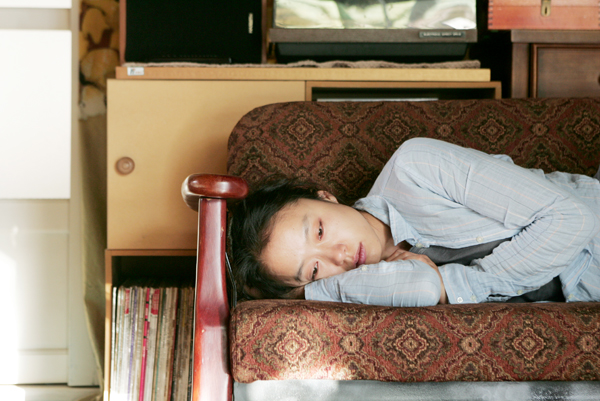|
Reviews of Recent Independent, Foreign, & Documentary Films in Theaters and DVD/Home Video

SECRET SUNSHINE
Lee Shin-ae (an extraordinary Jeon Do-yeon) is damaged before she moves from Seoul to Miryang (translated in Chinese as “a place with good sunshine”). On the outside, she seems cheerfully determined and creatively entrepreneurial, moving into a house, establishing herself as a piano teacher, settling her young son into school, making friends, and even considering investing in land. From her first arrival, a bespectacled mechanic at the local garage, Jong-chan (Song Kang-ho), is an endlessly annoying and persistent suitor, but at least he isn’t as leeringly macho as his buddies. He gets her to explain why she would come to a town losing population—her late husband was one of those who left, and she has a notion of connecting her son to his father’s nostalgic memories. She tolerates Jong’s chatty attentions, especially when she needs a ride, and he continues coming around, even when her visiting brother warns him that he’s just not her type. Jong lets the ever nosey and gossipy neighbors know her tragic tale, and they comment and criticize behind her back. Then she’s a victim of an awful crime ending in tragedy. Distraught, she desperately looks for succor. In what is in effect act two, she throws herself into an ever-recruiting Christian evangelical group, and Jeon Do-yeon’s change in emotional demeanor—becoming robotically peaceful—is startlingly spooky. The lessons she learns about dealing with grief are somewhat similar to those seen in the current film Rabbit Hole, but her path to forgiveness, of the perpetrator and herself, is far rockier (made messily complicated by hints of abuse in her past). Jeon Do-yeon dramatically shifts gears again into a total breakdown, and then again into cold revenge mode. It does
seem as if her travails will never end, especially when through it all
the interfering mechanic cheerfully pops up, too genially hopeful that
each new difficulty the widow faces will make her turn to him. It would
have been too easy, though probably more satisfying in the story, for
him to be a bad guy. Instead, his cluelessness is as emblematic of
shallowness as she is of an individual who just has to manage to go on
living, but as little more than a zombie.
Nora Lee Mandel
|

